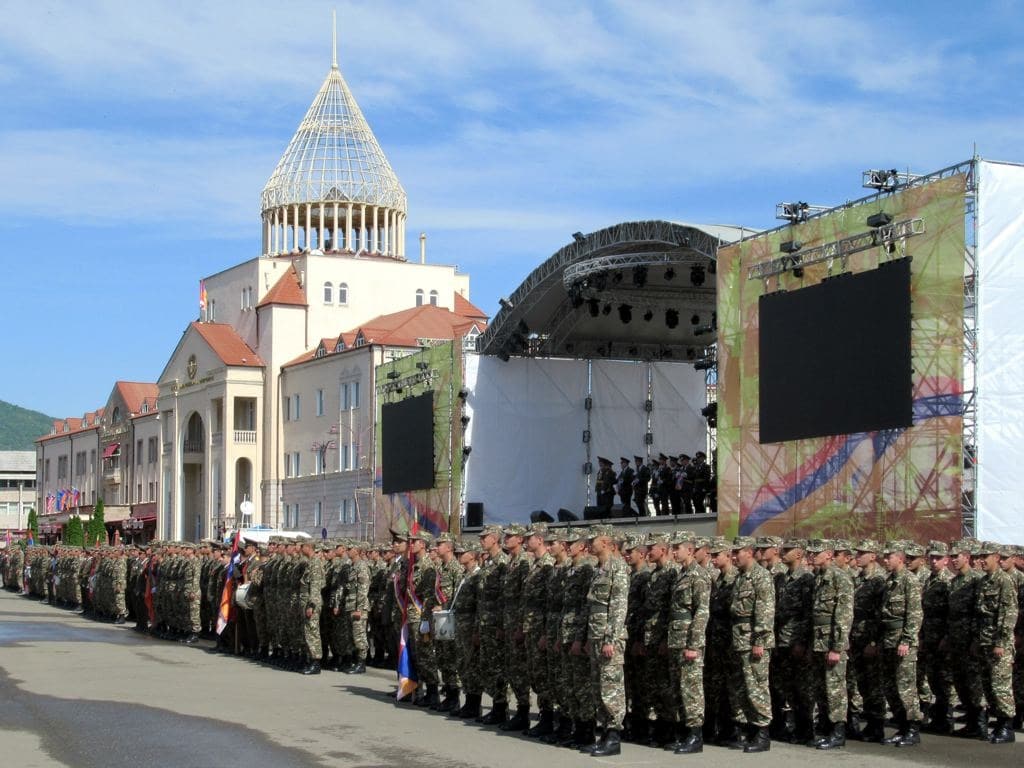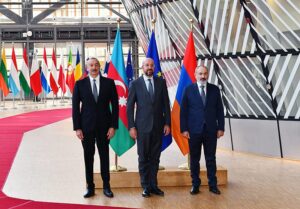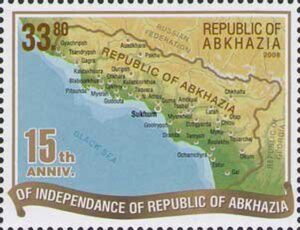In recent weeks multiple border incidents have occurred between Armenia and Azerbaijan. Tensions are on the rise. Last fall the countries fought a full-fledged war. Russia has been trying to mediate and could help demarcate the newly established borders. In the meantime, Armenia’s Prime Minister Nikol Pashinyan has to do everything in his power to bolster his support with the June 20 elections approaching. His support has steadily declined and he now faces serious competition from former Armenian Prime Minster Robert Kocharyan.
Border incidents continue despite Macron’s involvement
Most recently, on June 2, the Azerbaijan Defence Ministry said that 40 Armenian troops, which crossed into Azerbaijan-controlled territory, were forced to retreat by Azerbaijan forces. The claim was immediately denied by the Armenian Defence Ministry, who called it “disinformation”. This was just the latest chapter of multiple claims and allegations coming from either side. It also came merely a day after French President Emmanuel Macron urged Azerbaijan to retreat its troops from Armenian-controlled territory and both parties to start negotiations.
Macron became involved in the dispute after Armenia claimed that Azerbaijan forces had crossed several kilometres over its southern border last month. Although Azerbaijan insisted that its forces only took position on its own side of the border, Macron was clear to state that Azerbaijani troops needed to leave “Armenia’s sovereign territory” and that it stood “in solidarity with Armenia”. Pashinyan was happy to hear Macron “tell the truth”. However, given there is no common understanding of where the borders lie, it is hard to tell where the truth lies.
Different interpretations of post-war established borders
The latest war between Armenia and Azerbaijan, which saw 6,900 lives lost, ended in November 2020 with a Russia-brokered peace. Armenia lost significant parts of the Nagorno-Karabakh region, which Armenians had controlled for decades. About 2,000 Russian forces were stationed to maintain the peace. However, for both parties, it remains unclear where the exact border was established. As the winter retreated from the mountainous Caucasus terrain, confrontations between opposing sides were bound to come up.
The Azerbaijan capture of six Armenian soldiers on May 27 already showed both sides had different interpretations of were the borders where at. The Azerbaijan Defence Ministry stated that it had captured six Armenian troops which had crossed into Azerbaijan territory and were trying to plant landmines. A completely different interpretation of the event was provided by Pashinyan himself, who claimed that six border patrols were “abducted” by Azerbaijan when they were placing landmines and warning signs to mark the established border.
There had also been controversy about an alleged cross-border shooting between Armenian and Azerbaijan troops. On May 25, Armenia claimed one of its soldiers had died following the shooting. Azerbaijan insisted that it could not be true as its own troops had not returned fire after the Armenians had started. Much remains unclear about each individual story, which such contradictory narratives from either side. The only thing that remains clear, is that the newly border needs to be demarcated if future incidents want to be avoided.
Only Armenia positively views Russian mediating role
The Russians had already put effort in hosting negotiations between the Defence officials from both sides, without much success so far. However, the Russians seem to have put the issue more high up the agenda in light of recent events. The Russians have a defence pact signed with Armenia and have a military base there, but are also on friendly terms with Azerbaijan. The talks between Putin and his Armenian and Azerbaijan counterparts on May 19 had no impact so far, but setting up a joint commission with Amenia and Azerbaijan could.
On the same day as Putin’s talks, Russian Foreign Minister Sergey Lavrov proposed to the join border commission at a Collective Security Treaty Organization (CSTO) conference. Russia could play an important role in the commission as a “consultant” or mediator”. With the United States (US) and France also urging to find a solution, the commission could become a reality. However, Azerbaijan appears far less positive towards the establishment of the commission than Armenia. Armenia’s willingness could be seen in the light of its upcoming elections.
Former Prime Minister could pose serious threat to Pashinyan
When coming into power, Pashinyan’s approval ratings were as high as 85%. That number has declined, most significantly after the disastrous war with Azerbaijan in the fall of 2020. In February of 2021, Pashinyan’s rating had dropped to 55%. However, it long seemed there was no alternative to Pashinyan’s My Step Alliance. This changed when the Armenian Alliance was formed on May 9, led by former Prime Minister Robert Kocharyan. The latest MPG poll showed 22.9% for My Step and 17.5% for the Armenian Alliance, with the latter gaining momentum.
With the June 20 election nearing, Pashinyan is looking for ways to rally support. His tough stance on Azerbaijan in recently, could be seen as a way to make up for lost popularity after the recent war. Pashinyan was heavily criticized for losing many culturally important territories. He is personally blamed for “losing the war” by negotiating a peace. Emphasizing that Armenia might need to back up its demand with force, if negotiations fail, the Pashinyan government is sending strong messages to voters that this time he will stand its ground.
On the other hand, Pashinyan is aware of his relatively weak position vis-à-vis Azerbaijan. This is the reason why Armenia lost such large swaps of territory during the six week war. He is calling on its ally Russia to come to his aid and defend the status quo, fearing another confrontation with Azerbaijan in the near future could have fatal consequences. It is no coincidence that so much is going on in the region with elections approaching. Recent incidents will surely impact the election, but it just remains to be seen exactly how.
Sources: Aljazeera1, Aljazeera2, Eurasianet, Intellinews1, Intellinews2, Reuters1, Reuters2, Rferl1, Rferl2, Rferl3, Rferl4, Rferl5
Image: Flickr (Armenian military in Nagorno-Karabakh, 2017)



